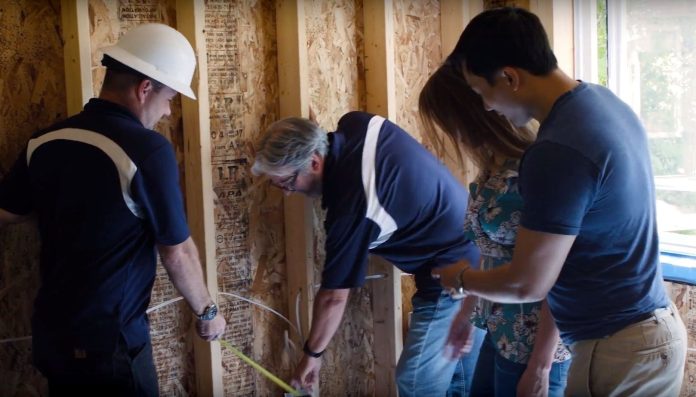By Patrick Langston, All Things Home
As homeowners, we know we need to do our due diligence when hiring a renovator, but the sudden closure of Orléans-based Highbridge Construction recently has many wondering exactly what due diligence entails.
The company closed its doors abruptly Feb. 3, walking away from incomplete renovation and home-building projects. Highbridge’s assets have been frozen, and the company is being investigated by Ottawa police, but that’s scant solace for clients who handed over money — in one case, a $230,000 deposit — they may never recover.
Ottawa abounds in excellent, ethical renovators, but homeowners need to know how to hire them.
Identifying potential contractors
Start by asking acquaintances if they’ve dealt with a good contractor and quiz your acquaintances about pros and cons of working with them.
Check RenoMark, a national program with many local members. RenoMark renovators have signed a strict code of conduct that includes a two-year warranty. Membership doesn’t guarantee performance (Highbridge was a RenoMark member, although its registration has been revoked), but it is a significant layer of protection.
Search for award-winning renovators and award finalists. Companies that make it to these stages tend to be solid businesses with an eye to quality.
Once you’ve identified prospective experts, check the Better Business Bureau for ratings and the Ontario government’s Consumer Beware List for complaints or charges.
And if someone raps on your door with a smile and a “special, time-limited price” on renos, bid them adieu pronto: reputable businesses don’t operate this way.
Interviewing contractors
As always, shop around. That means face-to-face sessions with a minimum of three contractors.
“Ask questions (and) be comfortable asking,” says Herb Lagois of Lagois Design-Build-Renovate. “A professional renovator will respect and appreciate all questions.” Among other questions, Lagois suggests inquiring about the renovator’s community involvement (“how caring they are”).
The Canadian Home Builders’ Association’s (CHBA) comprehensive homeowner information on renovations has helpful worksheets, including one on interviewing contractors.
Ask for references and check them thoroughly. Again, the CHBA has a worksheet. Talking to clients whose renos were done some time ago will help you determine how well a contractor’s work holds up, says Lindsay Nicol of Crossford Construction. If the reference is for a work in progress, “Drive by to ensure the project actually exists and if the site is neat.”
When checking references, ask what went well and what went badly and how the contractor dealt with problems, says Greg Simpson of Sunshine Build and Design.
“Every renovation isn’t 100 per cent smooth sailing; there’s always something that comes up. The good renovators will communicate and solve the issues (in a timely manner) and professionally.”
Finally, watch for red flags, says Lagois. A dirty or messy vehicle, taking phone calls during your appointment, talking over you or in circles: These and others are danger signs. “Listen to your instincts!” he says.
Contracts and deposits
A clear, detailed contract is essential in ensuring your project meets your expectations. It’s so important that Ontario requires any home renovation contract worth more than $50 to be in writing. Go through it with a fine-tooth comb and get all your questions answered before signing.
Contracts vary from one renovator to the next, but all must include a clear description of work, warranty terms and other details. Make sure there’s also proof of the renovator’s liability insurance and workers’ compensation coverage. Check the CHBA guide to contracts as well as Ontario’s contract requirements (ontario.ca/page/law-and-safety).
Before signing up with a renovator, Nathan Dunlop of Amsted Design-Build says to have a “job showing” with all the trades that will be taking on the job. “A job showing is where all the potential trade partners are brought in to assess the job before accepting the work.”
He says this helps ensure everything from a realistic budget to fresh eyes examining the site for potential challenges or concerns.
The contract must include payment terms, including the deposit and interim payments linked to either milestones or dates. The CHBA says deposits should not generally exceed 10 per cent of the total project cost. However, some good renovators ask for a higher deposit.
The deposit covers a contractor’s “upfront costs,” says Nicol, including subtrade contracts and deposits to suppliers.
And don’t forget about the “holdback.” It protects homeowners from liens against a contractor by allowing the owner to hold back 10 per cent of the total project cost for up 45 days after project completion.
Does all this sound onerous? It is. But, says Dunlop, “You must spend the time doing your due diligence. There is no quick fix in residential construction. You are placing trust in a company to spend your money wisely to deliver on their promise.”
Patrick Langston is the co-founder of All Things Home Inc. The veteran journalist has covered the Ottawa housing industry since 2008.
